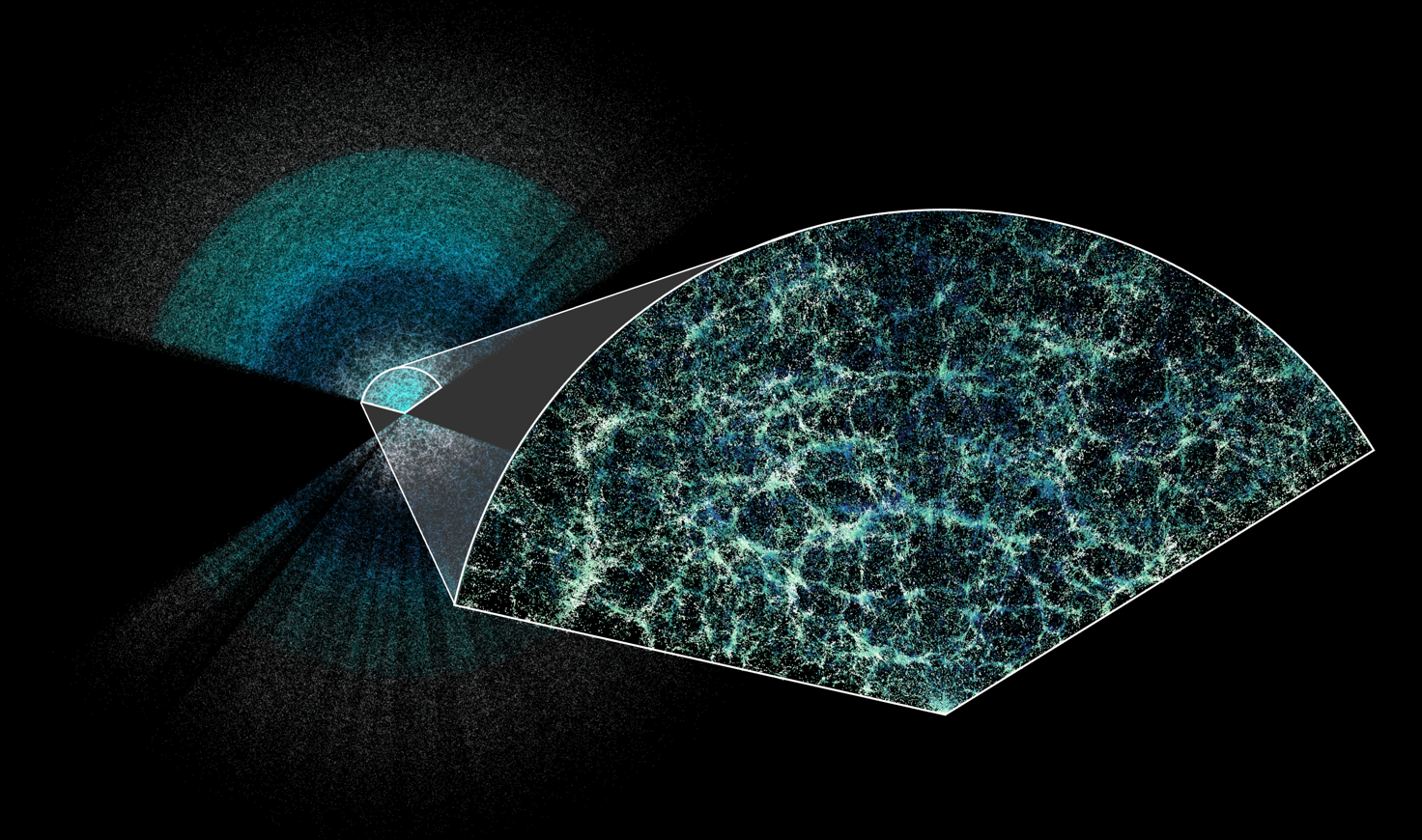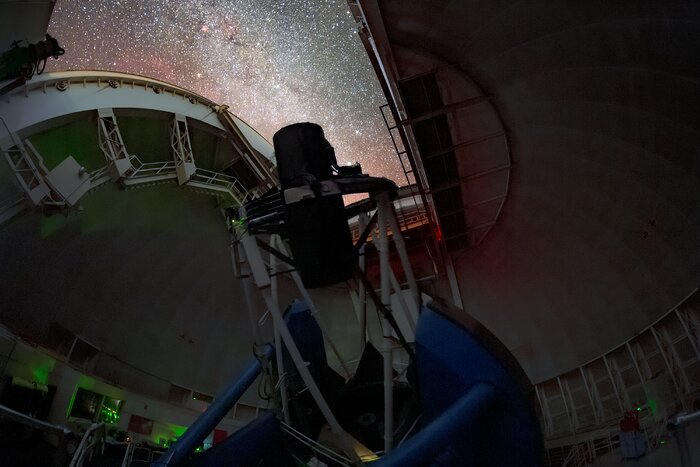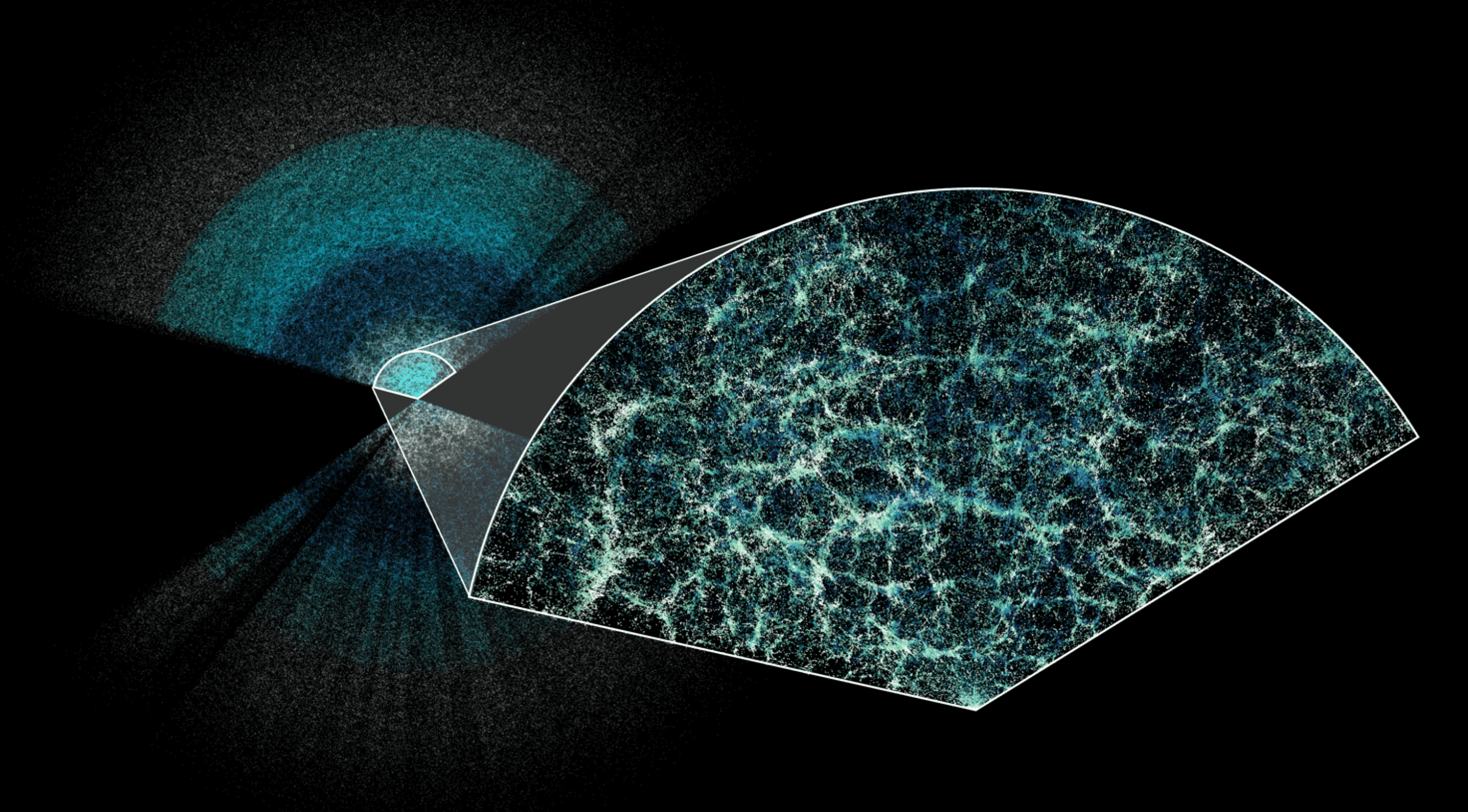DESI scientists see 11 billion years into the past
Canadian scientists working with the Dark Energy Spectroscopic Instrument (DESI) participated in the collaboration’s first-year analysis of an exciting new three-dimensional map of the universe, providing details about our cosmological past that have never been seen before.

The 3D map produced by DESI can see 11 billion years into the past, and help scientists understand how the universe has grown and evolved. This map of the cosmos uses galaxies and gas clouds as tracers of cosmic expansion throughout history and provides the most precise measurements we’ve ever seen of how the universe has expanded. Significant care was taken throughout all stages of data analysis, which led to the mapping of five million galaxies in unbelievable detail.
Scientists from Perimeter Institute and the nearby University of Waterloo played an integral role in creating this new map, along with collaborators from over 70 institutions around the world. DESI is managed by the US Department of Energy’s Lawrence Berkeley National Laboratory (Berkeley Lab). The Waterloo team is led by Will Percival, an associate faculty member at Perimeter and director of the Waterloo Centre for Astrophysics, and also includes Dustin Lang, a Perimeter computational scientist.
A key component of DESI is the study of dark energy, which is Percival’s specialty. “We have previously found convincing information that the universe is going through accelerated expansion. We call the unknown physics driving this ‘dark energy’,” said Percival, who is also a professor in the University of Waterloo’s Department of Physics and Astronomy. “By measuring DESI’s data, we are getting a better idea of what dark energy could be.”
The Waterloo research team has played a major role in DESI since 2018. “We observe the spectra of light from galaxies using DESI and use this to estimate the distance to them,” said Alex Krolewski, a postdoctoral fellow at Waterloo and a Perimeter affiliate, who works on cataloguing galaxies and their positions within that bigger picture. “In this round of data, we can see that some of the galaxies are further away and some are nearer than previous models suggested. This is giving us new insights into dark energy.”

“This is the first year of reporting from DESI, and with four more years of data still to discover, we have only just started to see how important DESI will be to the world of cosmology,” said Enrique Paillas, a Waterloo postdoctoral fellow who works in the core team making the measurements. “The data collected from DESI over the next few years will shed more light on the fundamental question of what is dark energy.”
DESI is also looking to help scientists better understand neutrinos, elusive particles that are hard to detect but play a big role in the formation of the universe. When combined with observations made of the Cosmic Microwave Background, remnants of the first light that could ever travel freely across the universe, the DESI team was able to calculate the sum of the masses of the three types of neutrino particles more precisely than ever before.
The DESI collaboration is honoured to be permitted to conduct scientific research on Iolkam Du’ag (Kitt Peak), a mountain with particular significance to the Tohono O’odham Nation.
À propos de l’IP
L'Institut Périmètre est le plus grand centre de recherche en physique théorique au monde. Fondé en 1999, cet institut indépendant vise à favoriser les percées dans la compréhension fondamentale de notre univers, des plus infimes particules au cosmos tout entier. Les recherches effectuées à l’Institut Périmètre reposent sur l'idée que la science fondamentale fait progresser le savoir humain et catalyse l'innovation, et que la physique théorique d'aujourd'hui est la technologie de demain. Situé dans la région de Waterloo, cet établissement sans but lucratif met de l'avant un partenariat public-privé unique en son genre avec entre autres les gouvernements de l'Ontario et du Canada. Il facilite la recherche de pointe, forme la prochaine génération de pionniers de la science et communique le pouvoir de la physique grâce à des programmes primés d'éducation et de vulgarisation.
